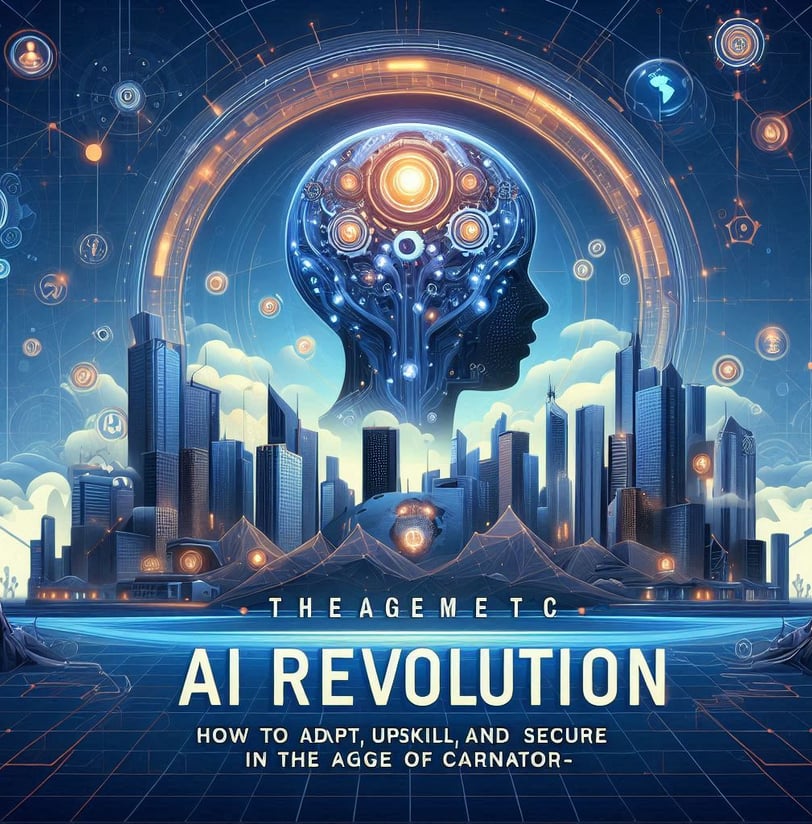The Agentic AI Revolution: How to Adapt, Upskill, and Secure Your Career in the Age of Automation
The rise of agentic AI is undeniably transforming the employment landscape, automating certain tasks while creating opportunities for new roles that require human-AI collaboration. By proactively upskilling and adapting to these changes, professionals can secure their positions and thrive in this new era of work.
Srinivasan Ramanujam
3/28/20252 min read
The emergence of agentic artificial intelligence (AI) is fundamentally reshaping job roles and responsibilities across various industries. As AI systems become more autonomous, capable of making decisions and executing tasks without human intervention, professionals must adapt to remain relevant in this evolving landscape.
Understanding Agentic AI
Agentic AI refers to AI systems or "agents" that can perform tasks, make decisions, and collaborate with other agents independently. Unlike traditional AI, which operates under human supervision, agentic AI functions autonomously, handling complex tasks across sectors such as finance, healthcare, and customer service. For example, PwC's 'agent OS' platform enables AI agents to communicate and work cohesively, automating intricate tasks within enterprises. Business Insider
Impact on Job Roles and Responsibilities
The integration of agentic AI into the workforce is leading to significant transformations:
Automation of Routine Tasks: AI agents are increasingly capable of managing repetitive and structured tasks, such as data entry, scheduling, and basic customer inquiries. This shift allows human employees to focus on strategic and creative endeavors. Microsoft's development of autonomous agents exemplifies this trend, with AI handling complex office tasks and freeing employees for more engaging work. Latest news & breaking headlines
Evolution of Entry-Level Positions: Industries like law and investment banking are exploring automation for lower-level tasks traditionally performed by junior professionals. This raises concerns about how new professionals will gain essential experience if these roles are diminished. Financial Times+1Business Insider+1
Emergence of New Roles: While some positions are being automated, new roles are emerging that require collaboration with AI systems. Companies are developing AI agents to enhance productivity, and employees are being trained to work alongside these systems, providing oversight and feedback to improve AI performance. Business Insider
Job Displacement and Creation: Recent Data
The impact of agentic AI on employment is multifaceted, involving both job displacement and creation:
Job Displacement: A McKinsey report predicts that AI could displace 400-800 million jobs globally within the next five years. In the UK, Tony Blair's thinktank forecasts that AI may displace between 1 million and 3 million private sector jobs over the next few decades. Additionally, nearly 47% of U.S. workers are at risk of job loss to automation over the next decade. Financial TimesThe GuardianGeeky Gadgets+1Electro IQ+1
Job Creation: Despite potential job losses, AI is also expected to create new employment opportunities. The same UK report suggests that long-term unemployment rises will be relatively modest, as AI-driven productivity and economic growth generate new roles. By 2035, AI could contribute significantly to the economy, potentially raising GDP by up to 6%. The Guardian+1Electro IQ+1
Strategies for Professionals to Adapt and Thrive
To navigate the changes brought by agentic AI, professionals should consider the following strategies:
Continuous Learning: Engage in lifelong learning to stay abreast of technological advancements. Pursue courses and certifications in AI, machine learning, and data analytics to enhance your skill set.
Develop Soft Skills: Cultivate skills that AI cannot easily replicate, such as critical thinking, emotional intelligence, and complex problem-solving. These competencies will remain valuable as they complement AI capabilities.Geeky Gadgets
Embrace Collaboration with AI: Learn to work alongside AI systems, understanding their functionalities and limitations. This collaboration can enhance productivity and open up new avenues for innovation.
Stay Agile: Be prepared to adapt to new roles and responsibilities as the job market evolves. Flexibility and a proactive approach to change will be key assets in the AI-driven workplace.
Conclusion
The rise of agentic AI is undeniably transforming the employment landscape, automating certain tasks while creating opportunities for new roles that require human-AI collaboration. By proactively upskilling and adapting to these changes, professionals can secure their positions and thrive in this new era of work.


